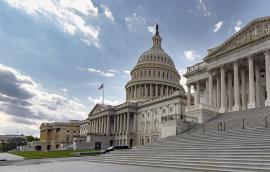Medlock Testifies Before Congress
Kenneth Medlock, senior director at the Center for Energy Studies, testified before the U.S. House of Representatives’ Committee on Small Business on June 17. Medlock testified for the committee’s hearing, “Crude Intentions: The Untold Story of the Ban, the Oil Industry and America’s Small Businesses.” He discussed the latest CES study, “To Lift or Not to Lift? The U.S. Crude Oil Export Ban: Implications for Price and Energy Security,” which analyzes the economic and energy security impacts of the 40-year-old ban on oil exports.
Kenneth B. Medlock III June 17, 2015





